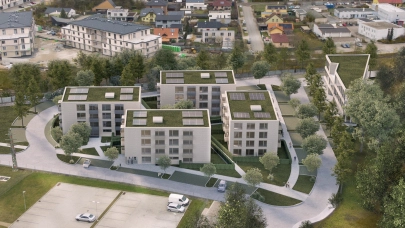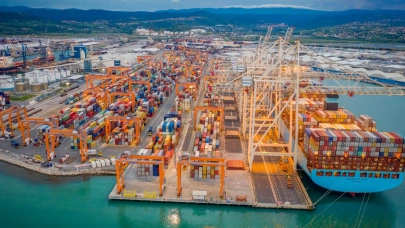
JLL and LaSalle Investment Management published the latest edition of the Global Real Estate Transparency Index - GRETI. The world's most transparent markets include the United Kingdom, Australia, the United States, France, Canada, the Netherlands, New Zealand, Germany, Ireland, Sweden and Finland.
“Transparency is becoming increasingly important for commercial real estate, where investors are allocating ever more capital. The availability and quality of information – from prices to ownership – is crucial when it comes to making investment decisions, especially in new markets”, says Jeremy Kelly, Director, Global Research at JLL.
In this year's ranking, Poland was in 20th position, outpacing all other countries from Central and Eastern Europe, including the Czech Republic (23rd), Slovakia (27th – also included among the top ten countries that recorded the biggest leap in the ranking), Hungary (28th) and Romania (29th). According to Mateusz Polkowski, Head of Research & Consulting, JLL, Poland's strong showing can be put down to several factors, such as the increase in supply, access to reliable market and transactional data as well as professional valuations and analyses. It is also important to note that development applies not only to the Warsaw market but to many other locations throughout the country as well.
“Poland continues to be the most attractive business location in the CEE region. This is confirmed by sound investment results and the high growth potential of the sector. This does not mean, however, that there isn't room for improvement. The important thing is to improve the transparency of legislative issues, such as changing the principles of settling the commercial real estate transaction tax, or introducing a new property tax. Furthermore, it is also of the utmost importance to have close cooperation with investors by, for example, inviting them to participate in consultations on drafting laws and which lead to the introduction of sophisticated legal changes in a gradual manner. Such a qualitative change in the approach towards investors, who place their capital on the Polish market, will contribute to the strengthening of our leading position in the commercial real estate in this part of Europe”, comments Tomasz Trzósło, Managing Director of JLL Poland.
Conclusions from this year's report:
- The United Kingdom, Australia and the United States are the world's most transparent markets, as the leading Anglophone countries continue to dominate the top ranks. Nonetheless, there are some tech-savvy Continental European markets in this top group as well. The Netherlands has consolidated its leading position, and is one of the countries/markets that have experienced the biggest jump in the report, while Sweden made its debut in the category of “Highly transparent” markets.
- Transparent markets are dominated by Asian and European countries, including five from CEE - Poland, the Czech Republic, Slovakia, Hungary and Romania. South Korea made its debut in this group while Singapore, Hong Kong and Japan are on the verge of being recognized as highly transparent.
- The world's largest emerging economies, such as China, India, Indonesia, Brazil, Mexico, Russia, Thailand and Turkey, are on the cusp of 'Transparent' status. In recent studies, these 'Big 8' markets have recorded great progress, albeit in a non-uniform manner. However, further regulatory reforms will be needed to push these markets into the 'Transparent' tier. The emergence of the PropTech sector (especially in China) will become crucial on markets that lack traditional sources of data and information.
- The least transparent country in the world is Venezuela, which in this respect, "has overtaken" a number of countries from Africa, Latin America and Asia.
According to a report by JLL, investors' attention in the next few years will begin to focus on cybersecurity and data protection as well as the working environment.
“The increasing importance of issues related to the workplace, such as the quality of air in buildings, employee comfort, and a space's design based on the needs of tenants is great news for the Polish real estate sector. This can be seen in, for example, the office sector, where the number of innovative projects is growing on a yearly basis which, in turn, consistently improves the perception of our market in the eyes of foreign investors. Greater implementation of solutions from the PropTech area will surely contribute to increased attractiveness and transparency of the real estate industry in Poland. This is one of the key factors that will allow Poland to compete with countries from Western Europe”, summarses Tomasz Trzósło.
The Global Real Estate Transparency Index is issued every two years and has now been published for the 10th time. It is based on market data and information gathered through the research of companies from the global business network of JLL and LaSalle Investment Management. This year’s edition is drawn from research into 100 markets. It took into account 186 factors which have been divided into six areas, namely performance indicators (responsible for 28.5% of the overall assessment), market foundations (16.5%), supervision over entities listed on organized markets (10%), conditions of law and legislation (25%), the quality of transactional processes (15%) and environmental sustainability (5%).
Based on these criteria, the countries have been assigned to the following categories: highly transparent, transparent, semi-transparent, low transparency and non-transparent (opaque). The index serves as a risk management tool for investors. It provides comparable data for multiple geographic locations and ensures support for creating investment strategies and as a resource allocation model for individual countries. It helps corporate tenants rate locations worldwide. Furthermore, the results of the report also serve as a tool for public institutions engaged in improving an economy’s transparency.



